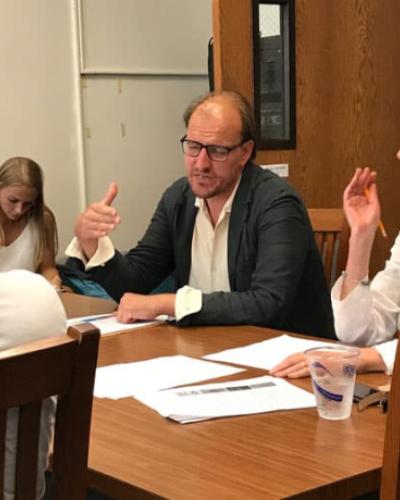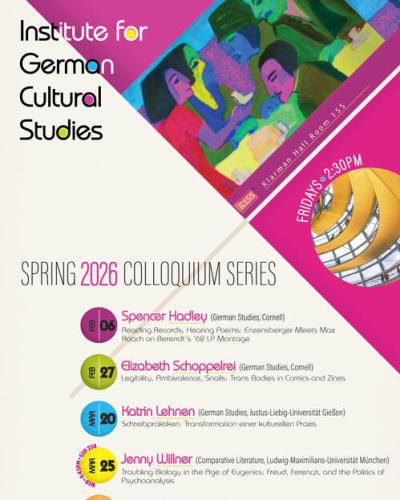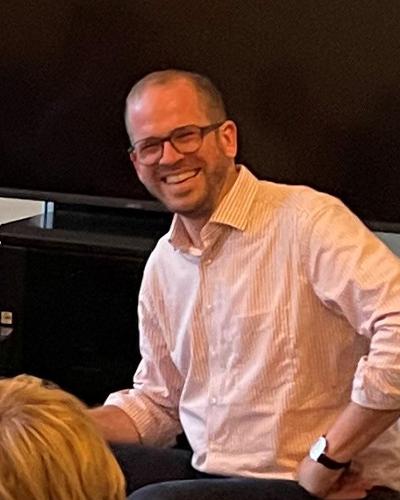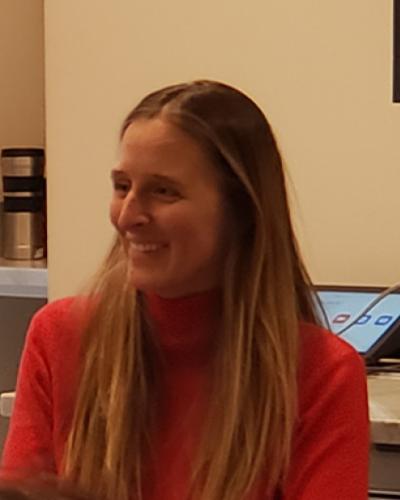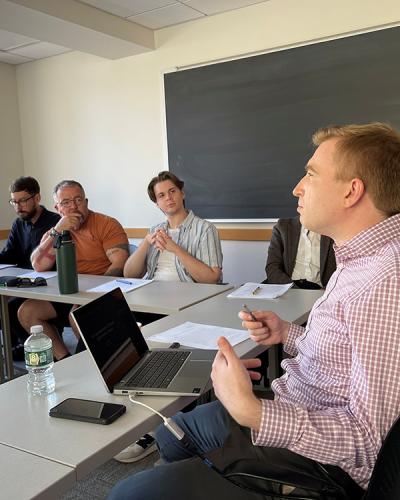This semester’s Institute for German Cultural Studies (IGCS) colloquium series opened Friday, September 6th with a discussion of a paper by Mark-Georg Dehrmann (Humboldt University, Berlin) entitled “Dimensions of the Modern Epic – the Example of Phantasmatic Orality.” Taking as its point of departure Hegel’s claim that the epic was dead by the beginning of the nineteenth century and had been replaced by the novel, Professor Dehrmann observed that epics construct or conceive of a community by pointing back to an oral heritage that is infused with vitality in a way that written texts are not. In cases where there is no historical oral tradition to be drawn upon, one may be created, as demonstrated by the case of the Ossian hoax in the European tradition as well as in the way Walt Whitman’s poetry configures the American community. The fact that the oral tradition does not need to be real in a historical sense is what gives it its phantasmatic quality. In addition to tracing the way in which epics reach back to these phantasmatic oral histories, Professor Dehrmann also explored several attempts to recover the epic spirit in Modernist and contemporary literature, and it is this latter line of inquiry that was addressed at length during Friday’s colloquium, leading to a fruitful discussion of the status of the epic in relation to German Modernist writers such as Alfred Döblin, poetry in the twentieth and twenty-first centuries, and the development of the concept of a national community as it relates to the epic. (Jason Archbold)
 Department Homepage
The College of Arts & Sciences
Department Homepage
The College of Arts & Sciences
Dimensions of the Modern Epic - the Example of Phantasmatic Orality
